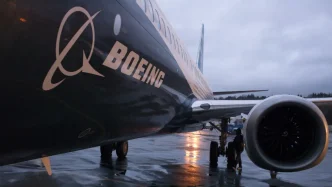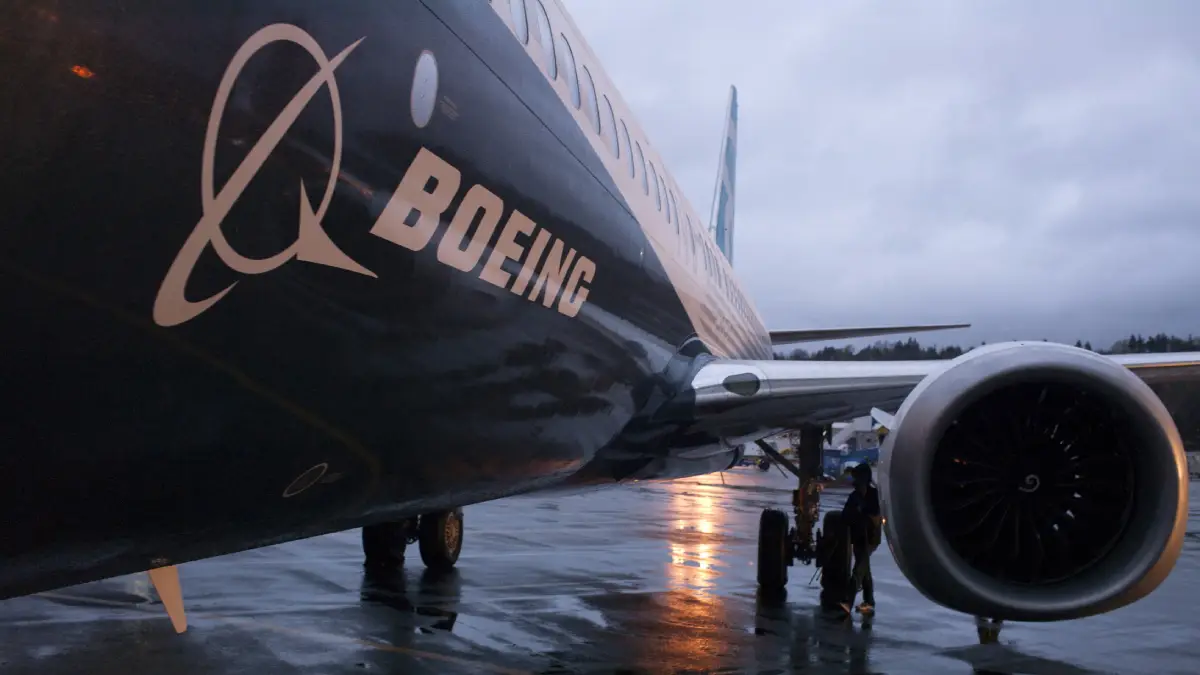Indonesia is ramping up its trade engagements with the United States, with national flag carrier Garuda Indonesia announcing plans to purchase 79 Boeing aircraft as part of a broader strategy to mitigate the impact of looming US tariffs. The deal, revealed by State-Owned Enterprises Minister Erick Thohir, comes amid delicate negotiations to avert a 32 percent tariff on Indonesian imports, which could severely affect the Southeast Asian nation’s economy.
Announced at the legislative complex in Senayan, South Jakarta, on July 10, 2025, the revised aircraft order marks a significant increase from the previously discussed range of 50 to 75 planes. This move is seen as a strategic effort to strengthen bilateral trade ties while addressing domestic needs for aviation infrastructure and energy self-sufficiency.
A Strategic Aviation Boost
The agreement with Boeing, which supersedes a prior annulled deal, focuses on modernizing Garuda Indonesia’s fleet with models such as the 737 Max and 787 Max, according to Garuda’s president director, Wamildan Tsani Pandjaitan. While discussions remain in early stages, Wamildan expressed optimism about finalizing the purchase, highlighting its potential to address Indonesia’s aircraft shortage. “This is a new agreement. The old deal has expired and was annulled during the PKPU process. The new total is 79 aircraft” Erick Thohir stated, as reported by local outlet Kumparan on July 10, 2025.
The financial backing for this ambitious expansion comes partly from state asset fund Danantara, with Garuda Indonesia set to receive Rp 6.65 trillion (~US$415 million) in financing. A significant portion of these funds will support its low-cost subsidiary, Citilink Indonesia, enhancing the country’s domestic and regional air connectivity. This investment aligns with Indonesia’s broader goal of bolstering its aviation sector, a critical component of economic growth in an archipelago nation reliant on air travel to connect its thousands of islands.
Navigating US Tariff Threats
The aircraft deal is a cornerstone of Indonesia’s response to the US imposition of a 32 percent tariff on its exports, a policy characterized by the Trump administration as a reciprocal measure. Although enforcement of the tariff has been postponed, US President Donald Trump warned Indonesian President Prabowo Subianto in a letter dated July 8, 2025, that the rate would apply to goods shipped to the US starting August 1 if no agreement is reached. This looming deadline has intensified negotiations, with Indonesia proposing up to US$34 billion in imports from the US, primarily in crude oil and aircraft.
State-owned oil and gas giant Pertamina is expected to play a pivotal role in these imports, contributing the bulk of the proposed trade volume. Erick Thohir emphasized that these efforts are not only about averting tariffs but also about strengthening Indonesia’s energy independence through overseas investments. “This is also about strengthening our energy self-sufficiency through overseas investment via Danantara, and addressing our aircraft shortage” he noted.
Deputy Energy Minister Yuliot Tanjung confirmed that plans to import oil and gas from the US are progressing, pending the outcome of ongoing talks led by Coordinating Economy Minister Airlangga Hartarto in Washington. “The Coordinating Economy Minister is still working on this. We’ve achieved a trade balance of around $15 billion on the energy side. So, we’ll have to wait and see what the final decision is” Yuliot said at an oil and gas forum on July 9, 2025, as reported by Bloomberg Technoz.
Economic Implications and Challenges
Indonesia’s proactive stance in these trade negotiations reflects the high stakes involved. The proposed US$34 billion in imports represents a significant commitment, aimed at balancing trade deficits and maintaining access to the lucrative US market. However, experts caution that striking a comprehensive trade deal with the US may prove challenging due to the complexity of aligning economic interests and regulatory frameworks. “The government will maximize all available opportunities to safeguard national interests,” stated Haryo Limanseto, spokesperson for the Energy and Mineral Resources Ministry, on July 9, 2025.
The potential imposition of a 32 percent tariff could disrupt Indonesia’s export-driven sectors, including textiles, electronics, and palm oil, which rely heavily on the US as a key market. Economists warn that such a tariff would increase costs for American consumers while dampening Indonesia’s economic growth, potentially exacerbating unemployment and inflation in the country. The aircraft deal with Boeing, therefore, serves as both a diplomatic gesture and a practical investment in Indonesia’s future, aiming to offset some of these economic risks by deepening ties with a major US corporation.
Broader Trade and Energy Strategies
Beyond aviation, Indonesia’s negotiations with the US encompass critical energy imports, with Pertamina at the forefront of efforts to secure crude oil supplies. This aligns with Jakarta’s long-term vision of achieving energy self-sufficiency, a priority given the nation’s growing population and industrial demands. The involvement of state asset fund Danantara in financing both aviation and energy initiatives underscores the government’s integrated approach to addressing domestic needs while navigating international trade pressures.
Coordinating Economy Minister Airlangga Hartarto’s ongoing discussions in Washington are pivotal. His ability to secure favorable terms could determine whether Indonesia avoids the punitive tariffs and cements a mutually beneficial trade relationship with the US. As Yuliot Tanjung indicated, the energy sector alone has already contributed to a trade balance of approximately US$15 billion, a figure that could grow with finalized agreements on oil and gas imports.
Regional and Global Context
Indonesia’s trade maneuvers occur against the backdrop of broader geopolitical tensions and economic uncertainties in Southeast Asia. As the largest economy in the region, Indonesia often sets a precedent for how neighboring countries engage with global powers like the US. The outcome of these negotiations could influence regional trade policies, particularly for nations like Malaysia and Vietnam, which also face similar tariff pressures from the US.
Moreover, the Boeing deal highlights the strategic importance of aviation in Indonesia’s economic framework. With over 17,000 islands, air travel is not just a mode of transportation but a lifeline connecting disparate communities and fostering economic integration. Expanding Garuda Indonesia’s fleet with modern, fuel-efficient aircraft like the Boeing 737 Max and 787 Max could reduce operational costs and improve service reliability, benefiting both passengers and the national economy.
Looking Ahead
As Indonesia awaits the results of Airlangga Hartarto’s negotiations in Washington, the nation stands at a critical juncture. The proposed Boeing aircraft purchase and energy imports represent a bold attempt to safeguard economic interests amid international trade challenges. However, the complexity of these talks suggests that a resolution may not come easily, leaving open questions about the long-term impact of US tariffs on Indonesia’s economy.
For now, Garuda Indonesia’s expanded order of 79 aircraft symbolizes Jakarta’s commitment to modernization and global engagement. Whether this deal will be enough to avert the looming tariff threat remains to be seen, but it underscores Indonesia’s determination to navigate a turbulent economic landscape with strategic investments and diplomatic finesse.
















